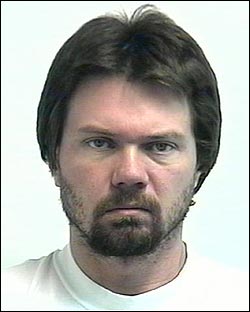
Pedophile
should go free eventually, hearing told
But
MD says he'll reoffend if not monitored carefully
Crown is seeking dangerous-offender status at hearing
 |
| A dangerous offender hearing is underway for ‘persistent’ pedophile Cory Newton. |
MOIRA WELSH
Forensic psychiatrist Dr. Philip Klassen said Cory Newton could be monitored if parole officers had the resources to watch him very carefully.
Klassen was hired by the crown attorney to assess Newton and make recommendations about whether he should be jailed indefinitely as a dangerous offender or eventually regain his freedom as a long-term offender. No matter what the result of the hearing, Newton will go to jail for his crimes.
Newton, a 36-year-old Niagara Falls man who spent years targeting, grooming and assaulting fatherless and vulnerable boys, is so dangerous that he must be monitored by strict parole conditions, Klassen stressed in testimony this week.
Shandy Lynn Briggs, of Corrections Service Canada, told the hearing earlier this summer that if an offender cannot be monitored under the existing system of roughly two meetings a week, then he should not be out on parole.
But Klassen said: "My recommendations (for his release) are being made on what (resources) could theoretically be made available."
Newton, who was in court this week, was convicted in 1998 for sex assaults against five boys and in 2002 pleaded guilty to 34 sexual assault and child pornography charges related to six boys. He once told his parole officer that he had assaulted between 20 and 30 boys.
The Ontario Attorney General's office is now trying to have him declared a dangerous offender, which would jail him indefinitely. Superior Court Justice Joseph Henderson, who is presiding over the hearing, will decide Newton's fate.
Klassen suggested that Newton's release be monitored by the following parole conditions: Never be in the presence of a child; check in or meet with police or parole on a daily basis, as required and do not associate with an adult whose child he knows by name. He also suggested that Newton's history be shared with all of his associates.
Klassen's report was filed Wednesday as an unsealed exhibit and put on the public record at Welland Court House, yet court officials refused to release the document.
Brendan Crawley, spokesperson for the Attorney General's office, said the ministry has a clear policy on access to court exhibits. A "Notice of Application" must be filed and it must be served on the crown attorney and defence lawyer, Crawley said. A hearing will be scheduled and a judge will decide whether the exhibit will be released, he said. "It would take days and days," he added.
Newton, whose crimes were detailed in the Star last April, spent at least 12 years sexually assaulting boys in Niagara Falls, while under the watch of police, probation officers, the courts, the children's aid society and parents.
His dangerous-offender hearing raises important questions about the way the criminal justice system manages high-risk offenders.
Research shows that hard-core pedophiles are nearly impossible to treat. At the same time, federal laws governing the sentencing of the worst criminals have come under fire from critics — including Ontario Attorney General Michael Bryant — for being unclear and too lenient.
In 2004, the number of dangerous offender designations dropped dramatically — to 11 down from 25 in 2003.
Klassen, of the Centre for Addiction and Mental Health, has worked on about 70 dangerous offender and long-term offender hearings. He was hired to make his recommendations by Welland Crown Attorney Linda Scaringi DesChatelets, who is seeking to jail Newton indefinitely. In court last week, Klassen said that in making his recommendations, he must follow the Criminal Code legislation, which defines a long-term offender as someone with a "reasonable possibility of eventual control of the risk in the community." He said the definition is unwieldy and hard to use in a practical way.
Klassen's tests concluded that Newton is a highly intelligent, manipulative pedophile.
But he said that if measures were in place to monitor Newton, he could be released as a long-term offender after serving a penitentiary sentence. Klassen said sex offenders' re-offence rates drop after 50, as their testosterone diminishes.
He said Newton would have the option of using drugs that reduce the sex drive but said most offenders tend to stop taking them.
"The tension is, are the resources that Mr. Newton needs to manage him going to be there if and when he gets there? I don't know."
The hearing is scheduled to continue in mid-November.